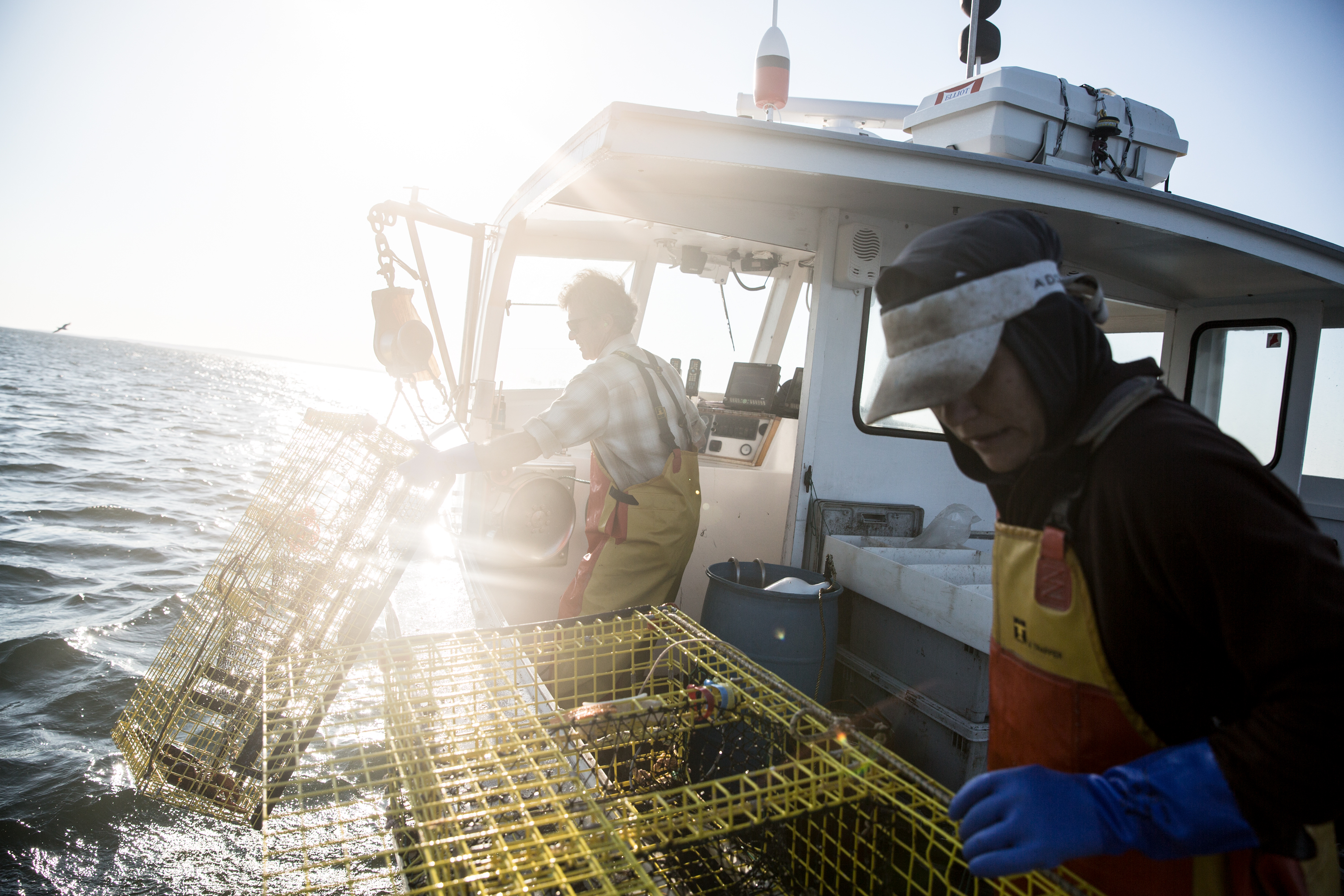The Marine Stewardship Council has suspended Maine's lobster fishery certification, citing an ongoing federal lawsuit, according to the Maine Certified Sustainable Lobster Association.
That lawsuit (Center for Biological Diversity v. Commerce Secretary Wilbur Ross) has so far yielded a judge's ruling NMFS' 2014 biological opinion on the Northeast American lobster fishery violates the Endangered Species Act because it does not include an incidental take permit for North Atlantic right whales.
As a result, NMFS is working to release a draft of a new biological opinion this year.
"The [Maine Certified Sustainable Lobster Association] is anticipating NOAA’s 2020 draft biological opinion, which may be made public as soon as August 2020. Once the 2020 biological opinion is finalized and implemented, the MCSLA will work to quickly regain its MSC certification," the organization said in a statement.
"Right whales are critically endangered, but not because of the Maine lobster fishery," said Patrice McCarron, executive director of the Maine Lobstermen's Association. "This decision by MSC is another example of decision-makers ignoring the data and singling out the Maine lobster fishery as the scapegoat for the right whale decline."
The last known entanglement of a right whale Maine lobster gear took place nearly 20 years ago, in 2002. Since then, the Maine fleet has been proactive in establishing comprehensive whale conservation measures.
"The facts related to the right whale decline are clear," McCarron added. "Since 2017, 31 right whales have died. The full accounting of these right whale deaths reveal that Maine lobstermen are not the culprits: 23 right whale deaths were attributed to Canada (8 vessel strikes, 6 entanglements, and 9 undetermined), six were attributed to the U.S. (2 vessel strikes and 4 undetermined), and two were undetermined without a distinguishing feature to tie them to a particular fishery or country. Last year, all 10 right whale deaths were attributed to Canada."
Despite evidence to the contrary, Oceana issued a release supporting the decision on Monday. When pressed for a justification for its support, given the fishery's active participation in mitigation measures, the organization's communications director quoted senior campaign manager Gib Brogan:
"The Maine lobster fishery has modified its gear in the past to help reduce risk to whales. But the federal government has been clear that more needs to be done to reduce the risk to North Atlantic right whales including those that are known to swim in Maine’s waters."
But the federal government has been anything but clear on this topic. In fact, it's been quite fuzzy. Hence, the lawsuit.
On the one hand, the Atlantic Large Whale Take Reduction Team voted in spring 2019 to reduce vertical lines in the water, as urged by NMFS.
However, NMFS stated in its 2014 opinion that the American lobster fishery “may adversely affect, but is not likely to jeopardize, the continued existence of North Atlantic right whales.”
Furthermore, the lawsuit requiring incidental take permits may have scratched out a legal niche, but it does nothing to further the cause of protecting whales except perhaps by serving as a backdoor opportunity to shut down the fishery on the technicality of the "missing" permit.
"Revoking the Maine lobster fishery’s MSC certification will not benefit right whales," McCarron said, "but instead, will punish an industry with an excellent track record of right whale protection that remains actively engaged in enhancing its right whale conservation efforts."
The suspension of the certification is evidence of MSC's willingness to offer up its supposedly neutral certification process as a political football.
"The MLA is extremely disappointed that MSC has not done diligence in its review of the Maine lobster fishery," McCarron said. "MSC’s report erroneously states that 'there are more NARW mortalities due to pot gear entanglements than the MMPA indicates is required to not hinder the recover of the population.' This is only true if one is referring to entanglement in Canadian snow crab gear but is patently false statement if made in reference to the Maine lobster fishery."
Meanwhile, the lawsuit is ongoing, with fishery stakeholders having offered testimony on Monday, Aug. 3, most of whom are still actively working to find solutions to preserve both the Atlantic whale populations as well as the future of the fishery.
"Maine lobstermen remain committed to doing their part to save right whales, but they cannot save this species on their own. The sooner everyone works together to identify measures to effectively address vessel strikes, entanglement interactions in Canada, and across all U.S. fisheries, the sooner right whales will have a fighting chance to recover," McCarron said.







